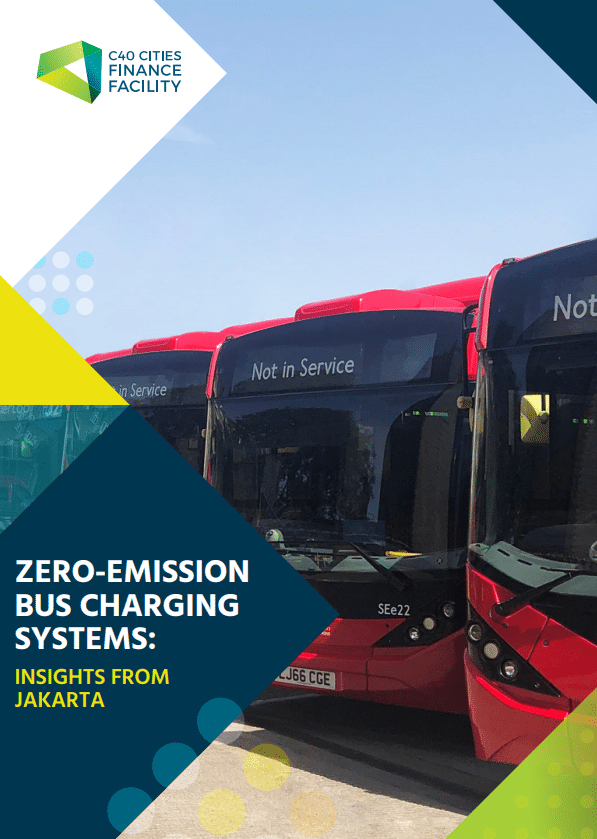Zero Emission Bus Charging Systems
Insights from Jakarta

The aim of this report is to provide city officials and practitioners with an understanding of the key elements and considerations in determining an appropriate and cost-effective charging system
for the deployment of zero emission buses.
The five key insights are:
- Bus technologies and their requisite charging strategies need to be analysed as a system. It is not necessarily true that shorter routes require smaller batteries and longer routes require larger batteries.
- A strategy that replaces 100% of buses on a designated route with zero-emission vehicles rather than split over multiple routes can make it easier for operators to evaluate deployment and ensure reliable, high-quality information for analysis and decision-making.
- It is necessary to understand the relationship between operational requirements, such as air conditioning, loading and distance, and measured battery range to develop an optimal charging strategy.
- The preferred charging schemes and infrastructure must be considered within the context of local grid capacity and the potential to upgrade capacity in the future.
- Bus depots are often ideal locations for installing distributed renewable
energy generation, such as rooftop solar photovoltaic (PV) systems, which can reduce operational costs, improve air quality and deliver significant climate benefits.
Name of the Document: Zero Emissions Bus Charging Systems: Insights from Jakarta
Organisation: C40 Cities Finance Facility
Authors: Lyan Villacorta and Oliver Walker
Year: 2020
10 Pages | Language: English
Download here

Author(s)
